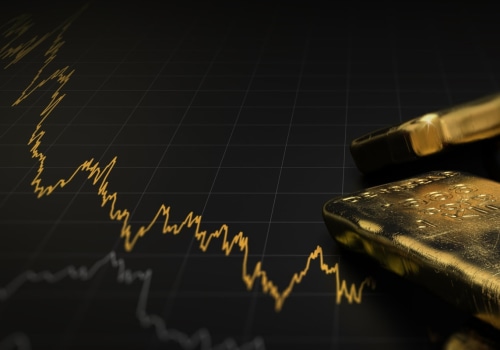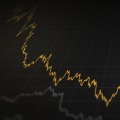To make buying easier, gold coins are one of the best ways to invest in gold for beginners. Occasionally, you may come across gold coins marked because of their collector's value. Collector's value can make them more expensive than the actual base value of gold. Gold, on the other hand, is an investment that will always have a physical value.
Learn how to invest in gold and you can get a high rate of return, especially on long-term investments for decades. You can invest in gold in several different ways. There are options between physical, virtual and adjacent gold investments. Make sure you know the differences between these types of investments (and their potential risks and returns) before you start buying gold in any form.
The value of gold can change quickly and frequently. These changes make gold-based investments a poor choice for people who are anxious about daily returns. So you should only invest in gold if you can handle a bumpy ride that promises risky moments, but promises substantial potential profit at the end of the road. Gold investments allow you to choose how practical you want to be and then adjust your risk level accordingly.
If you like physical assets, you can buy gold bars or gold jewelry directly. If you prefer to diversify your portfolio, look for gold funds or buy shares in mining companies. Stalking pawnshops and real estate sales is a great way to find physical gold. Gold coins and gold jewelry often appear in those places, and you can get them for pennies on the dollar.
However, don't forget to store your stash of gold in a safe place. You can also buy gold, virtually, without having to leave your home (more on this below). If you already have a sizeable investment portfolio, you may now want to consider diversifying and adding gold investments. You can also find ways to invest in stocks that revolve around the gold industry, such as gold mining, refining, and producing stocks.
If you decide to buy gold stocks, remember that gold can be a volatile market. Most investors allocate funds to both gold and traditional stocks to hedge their investments. By investing in just one type of stock, you can become vulnerable to market swings. You'll want to get into gold stocks as soon as possible so that your investment can mature for decades and help provide a safety net for your retirement.
Gold prices may be volatile, but decades of steadily rising gold values show that steady gains can be made over the long term. Many financial experts say that gold is the ideal way to diversify your portfolio for stability. Buy physical gold bars if you want raw gold that you can hold in your hand. Buying bullion gives you direct exposure to gold, but you need to store them in a safe place in case of emergency.
Remember that gold bars are a long-term investment. You can buy gold bars locally or online (just search for “buy gold bars near me”). Make sure you buy only pure gold bars (at least 99.5% pure gold). You can check sites such as JM Bullion or APMEX.
You'll also want to make sure it's minted by a popular gold minter like Valcambi or the Royal Canadian Mint. Just like bars, you can buy coins locally or online. If you shop online, WholesaleCoinsDirect is a reputable site to visit. Choosing an ETF, with its many different assets, reduces the risk you incur when you invest in a specific company.
Gold ETFs Expose You to a Diverse Set of Interests Across a Broad Spectrum. You can buy more shares over time to increase your investment amount. A main reason to invest in a gold ETF is the low minimum commitment. You can buy gold without having a large sum to invest, and wide exposure will be able to minimize your risk.
If you are looking for a way to easily enter the gold market, gold ETFs could be a great option. Investing in a gold mutual fund is another smart way to hedge against inflation and provide a hedge against economic shock. If you already have an existing portfolio, you can diversify between 10% and 20% into gold savings funds to take advantage of ETF stocks that are directly dependent on the price of physical gold. You can also invest in other gold-related funds, such as gold mining stocks, to further diversify your holdings.
Options can be a low-risk way to play on the stock market (although there are significant risks if you don't know what you're doing). You can take advantage of your option if you think the selling price of gold goes up or down. If the price of gold moves in the opposite direction, you have contained your responsibility. The maximum risk is the premium you paid for your options contract.
Gold futures allow you to fix your profits or mitigate your losses at any time. If you buy gold futures based on physical gold, you won't receive delivery until the contract has ended, eliminating storage needs in the interim. You can choose to transfer your investments to other vehicles and avoid having to store physical gold. You can take a short or long position in your futures contracts, depending on your investment strategy.
If you plan to sell the commodity and hedge it later at a lower price, that is called a short position. If you buy gold waiting for the price to rise and accept delivery of the gold, take the long position. Choose futures contracts if you want more flexibility, financial integrity and leverage than you can get when trading physical commodities. You can still buy gold certificates from a bank that has physical gold.
If you do, technically the bank owes you the gold, but it won't belong to you. Instead, you will have “unallocated” gold, since the certificate represents the value of the gold, but not a specific gold bar. Unallocated gold does not require a high premium, so you can buy it and forget about it. However, since you don't own physical gold, the bank may part without your participation and then reimburse you.
Alternatively, you can purchase gold certificates for the assigned gold. This means that you will own the physical gold and the bank will have to give you the serial number of each gold bar. However, a bank may also charge you exorbitant fees for storing your gold in your vault. The gold allocated belongs to you, not to the bank, so it cannot be seized or liquidated.
If the bank goes bankrupt, you can take possession of the assigned gold by proving ownership with your gold certificate. You may be able to store physical gold at a lower cost than paying a bank to keep allocated gold linked to a gold certificate. It is better to buy gold as a long-term investment, as it reliably maintains and increases its value over time. Short-term investing is more volatile, you may find that your returns fluctuate wildly.
In general, investing in gold is a sound plan and can strengthen your long-term financial position. Founded in 1976, Bankrate has a long history of helping people make smart financial decisions. We have maintained this reputation for more than four decades by demystifying the financial decision-making process and giving people confidence in the following actions. Gold futures are a good way to speculate on the rise (or fall) in the price of gold, and you could even receive physical delivery of gold, if you want, although physical delivery is not what motivates speculators.
The biggest advantage of using futures to invest in gold is the immense amount of leverage you can use. In other words, you can own many gold futures for a relatively small sum of money. If gold futures move in the direction you think, you can earn a lot of money very quickly. You can expose yourself to gold by buying jewelry, coins or gold bars.
Gold bars are traded close to the price of gold, and can refer to gold bars or gold bullion coins. In general, gold is considered a diversifying investment. It is clear that gold has historically served as an investment that can add a diversifying component to its portfolio, regardless of whether it is concerned about inflation, a fall in the US. UU.
Dollar, or even protect your assets. If your focus is simply diversification, gold is not correlated with stocks, bonds, and real estate. Buying shares of companies in mining, refining or other aspects of the gold production business is one way to play. Around 300 of these companies, also known as mining companies, are listed on major stock exchanges.
Their share prices generally reflect the movement of the metal itself. However, the growth and return of stocks depend on the company's expected future earnings, not just the value of gold, notes the World Gold Council, an industry trade group. As this means buying shares of gold mining companies, you can invest using your brokerage account. These funds are traded as stocks and represent assets backed by gold, although those who invest do not own any physical gold.
Investing in gold mutual funds means that you own shares in multiple gold-related assets, such as many companies that mine or process gold, but you don't own real gold or individual shares. When investors realize that their money is losing value, they will begin to position their investments in a strong asset that has traditionally held its value. Of all the forms of investing in gold, the riskiest is trading futures or options contracts, a form of speculative investment. Adding gold to your portfolio can help you diversify your assets, which can help you better cope with a recession, but gold does not produce cash flow like other assets, and should be added to your investment mix in a limited amount and with caution.
Like buying any individual stock, buying shares in a gold mining company carries some risk, but it does mean that you have full control over which specific companies you invest in. This helps investors seeking gold security and inflation protection to benefit from a more liquid investment in gold than a physical investment in gold. While owning gold sounds great and can even be considered responsible during a stock market downturn, investing in gold comes with some unique challenges and doesn't always work the way you'd expect. Diversification refers to investing in a variety of assets across a variety of industries, company sizes, and geographic areas.
Investment decisions should be based on an assessment of your own personal financial situation, needs, risk tolerance and investment objectives. This can make it overwhelming for beginner investors to know the best way to expose themselves to this precious metal. In a recession, commodities can fall sharply, causing stock markets to collapse and inducing panic. Keep in mind that trading futures contracts involves a lot of risk and is not a suitable investment option for an inexperienced investor.
. .







Leave a Comment